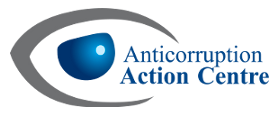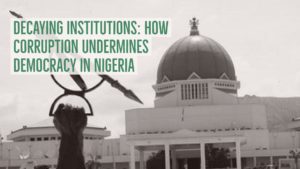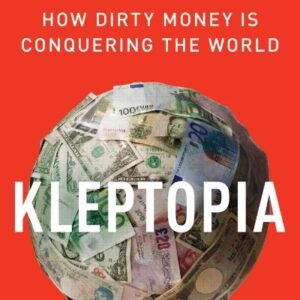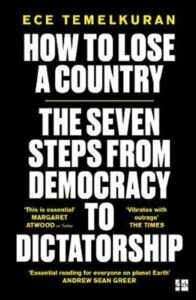In 2014 Ukrainians got so fed up with the grotesque corruption of their political class that they staged a revolution, The Economist reports. Since then, reformers have been trying to build institutions to hold the country’s oligarchs and crooked politicians to account. One big victory was establishing an electronic asset-declaration system, an online registry where officials must list all of their main possessions. But on October 27th Ukraine’s constitutional court found a clever way to cripple this system: it struck down the anti-corruption authorities’ power to punish anyone for lying on it, it adds:
 Those who dislike the clean-up efforts may next attack laws that have let dodgy banks (owned by oligarchs) be nationalised, and a new law opening up the land market. The Anti-corruption Action Centre (ANTAC), the country’s premier watchdog, says such legal challenges are a stubborn effort to re-establish the sort of kleptocratic order that existed under Viktor Yanukovych, a disgraced ex-president, and to sabotage Ukraine’s turn towards the West. The constitutional court is “the most protected organ in the country,” says Olena Shcherban, ANTAC’s chief legal expert. If Mr Zelensky wants to salvage his presidency, he will have to take it on.
Those who dislike the clean-up efforts may next attack laws that have let dodgy banks (owned by oligarchs) be nationalised, and a new law opening up the land market. The Anti-corruption Action Centre (ANTAC), the country’s premier watchdog, says such legal challenges are a stubborn effort to re-establish the sort of kleptocratic order that existed under Viktor Yanukovych, a disgraced ex-president, and to sabotage Ukraine’s turn towards the West. The constitutional court is “the most protected organ in the country,” says Olena Shcherban, ANTAC’s chief legal expert. If Mr Zelensky wants to salvage his presidency, he will have to take it on.
Corruption and kleptocracy corrode democracy where authoritarians are on the march, say Brookings analyst Patrick W. Quirk and Daniel Twining, President of the International Republican Institute.
 But citizens are not standing by, they write for Brookings. Instead, they are mounting broad-based protest movements to demand change, as in Belarus, or root out endemic corruption, as in Iraq. Since 2017, roughly 100 significant protest movements have led to substantial reforms or the removal of 30 governments and leaders.
But citizens are not standing by, they write for Brookings. Instead, they are mounting broad-based protest movements to demand change, as in Belarus, or root out endemic corruption, as in Iraq. Since 2017, roughly 100 significant protest movements have led to substantial reforms or the removal of 30 governments and leaders.
The US financial system is an equal opportunity target for illicit actors, but Russia poses the greatest proven threat, notes a new report. According to the most reliable estimates, Russia has the world’s largest volume of dark money hidden abroad—about $1 trillion—both in absolute terms and as a percentage of its national GDP, Dr. Anders Åslund and Julia Friedlander write in Defending the United States Against Russian Dark Money. An estimated one-quarter of this amount is controlled by Russian President Vladimir Putin and his close associates, and the Kremlin appears to be able to persuade dependent oligarchs to assist financially in its foreign policy undertakings.
 The report argues that these funds pose a serious national security threat to the United States because this money can be exploited and steered by the Kremlin for espionage, terrorism, industrial espionage, bribery, political manipulation, disinformation, and other nefarious purposes. The authors provide policy recommendations to address these vulnerabilities through increased transparency of ownership and tactics to combat money laundering.
The report argues that these funds pose a serious national security threat to the United States because this money can be exploited and steered by the Kremlin for espionage, terrorism, industrial espionage, bribery, political manipulation, disinformation, and other nefarious purposes. The authors provide policy recommendations to address these vulnerabilities through increased transparency of ownership and tactics to combat money laundering.
Tom Burgis’s Kleptopia: How Dirty Money is Conquering the World* illuminates the legalised secrecy around the hubs of big money and how integral dirty money is to political power, notes Ece Temelkuran, the author of How to Lose a Country: The 7 Steps from Democracy to Dictatorship. However, Burgis does not pursue the question of how these main arteries of money stretch out to wider society, forming capillary systems that ultimately benefit ordinary people, turning many into the devotees of autocrats and thus corrupting entire societies, she writes for The FT:
 It is this wider web that establishes a political atmosphere where many begin to believe that when the autocrat falls everything collapses. And that is why they support and protect the leader as if they are fighting for their lives. Still, at the very end of the book, Burgis asks the essential question facing ever more people in an increasingly volatile world: “Do you want to learn to love Kleptopia and be brought within the wall? Or would you rather be outside, in the wilderness that we used to call commons, defenceless as the water rises? Choose.”
It is this wider web that establishes a political atmosphere where many begin to believe that when the autocrat falls everything collapses. And that is why they support and protect the leader as if they are fighting for their lives. Still, at the very end of the book, Burgis asks the essential question facing ever more people in an increasingly volatile world: “Do you want to learn to love Kleptopia and be brought within the wall? Or would you rather be outside, in the wilderness that we used to call commons, defenceless as the water rises? Choose.”
The Atlantic Council holds a webinar on a new report, “Defending the United States Against Russian Dark Money.”
Speakers: report co-author Anders Aslund, senior fellow at the Atlantic Council’s Eurasia Center; report co-author Julia Friedlander, deputy director of the Atlantic Council’s GeoEconomics Center; former Treasury Undersecretary David Cohen; Daniel Fried, fellow at the Atlantic Council; and Anne Applebaum, author of “Twilight of Democracy: The Seductive Lure of Authoritarianism.” 3pm. November 17, 2020. Register here.
*Author Tom Burgis discusses Kleptopia on November 19 at 5pm Eastern Time / 10 pm London time in a discussion hosted by Politics & Prose in Washington.







